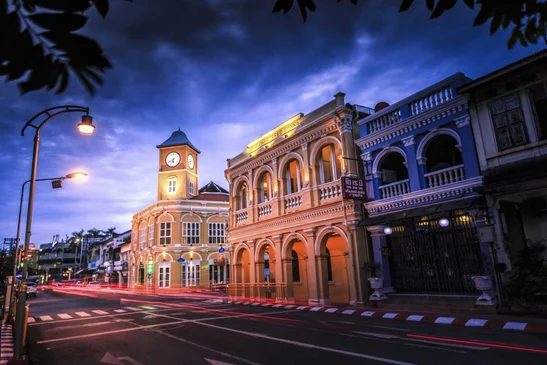
Culture shock is one of those terms that is tossed about without much thought. On its face, the concept seems fairly straightforward; someone struggles with some characteristic(s) of a foreign culture because it is so far removed from what they are used to. This description does encompass part of what culture shock is, however, it is actually a well-studied and documented psychological phenomenon that many expats experience in a variety of ways. Psychologists break down culture shock into four stages: honeymoon, negotiation, adjustment, and adaptation.
The honeymoon stage is fairly self-explanatory. It’s likely that many people who have an enjoyable visit to Phuket experience this to varying extents. Maybe they chat with some friendly locals and expats, have an amazing day of diving or hanging out on the beach, and after an incredible dinner walk by a real estate office with listings in the window and their mind starts to wander. It’s thought the honeymoon phase lasts around three months.
Next is the negotiation phase which begins when some of the cultural differences considered fascinating or quaint start to take on a different meaning. Many longtime expats in Phuket have either experienced this themselves or have witnessed this happen to other people. The mindset has shifted from bedazzlement and intrigue to annoyance, disappointment, and frustration. Thousands of expats spend significant time on social media or online news sites posting negative comments about everything. They simply can’t come to terms with the fact that things are done differently than their own culture or they feel this difference is inherently bad. Some expats live here for years and seem to get stuck in this phase, making little to no effort to learn the language, constantly criticizing the way things are done, and stubbornly refusing to assimilate into the culture in any way. It’s not good for one’s mental health and can result in depression, drug and alcohol abuse, and other self-destructive ways of coping.
Some of the differences expats struggle with lie within a wide spectrum such as the weather, hygiene, attitudes towards authority like police and immigration, personal space, and especially the language barrier. Of course, communication is an extremely important aspect of everyday life and when one’s ability to communicate effectively is diminished, it can lead to feelings of frustration, helplessness, and loneliness.
According to experts on the subject, after 6-12 months many people transition into the adjustment phase. By this point, a greater understanding of what to expect in different situations and everyday life is reached which leads to a more positive attitude. Eventually, the final stage of adaptation is achieved when one feels comfortable in and accepted by the host culture to some extent.
By now, it’s possible to glean some ways to alleviate the effects of culture shock or hasten the process. If not for some clear reason such as your job has brought you here, consider carefully why you want to live in a foreign country, specifically Phuket. Are you genuinely interested in the culture and consciously sensitive and respectful of it? Are you willing to attempt to learn a difficult language? Can you sacrifice many of the everyday conveniences we all take for granted? While there are challenges that need to be faced when living in a foreign country for an extended time, it is also an exciting and rewarding experience.



















